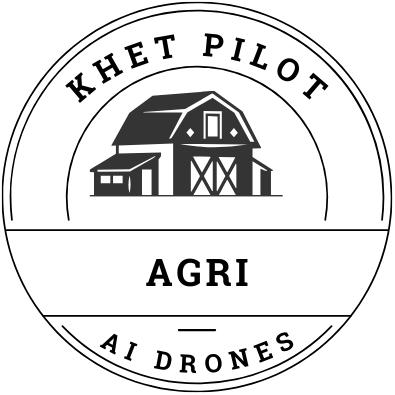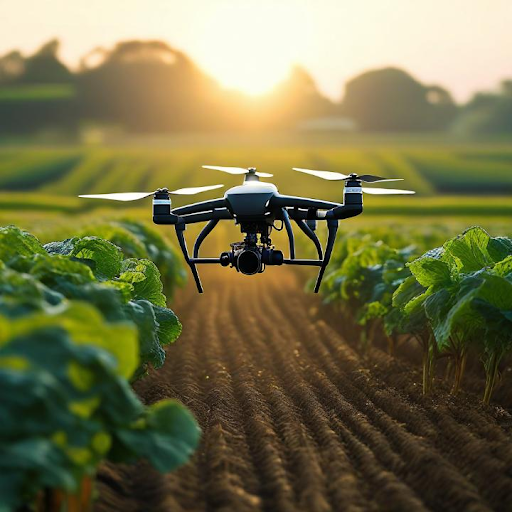Farm drones are emerging as transformative tools in addressing the global agriculture sector’s challenges with pests and diseases. These pests significantly reduce crop yields, affect food security, and increase dependence on chemical pesticides. Although traditional pest control methods have been chemical-based, they harm the environment and leave residues on crops. In contrast, biological pest control is sustainable, as the deployment of natural predators helps control pest populations.
Recent drone innovations have improved the way farmers release pest predators, making farms more efficient and ecologically friendly. This blog explores how farm drones are redefining biological pest management and the benefits they offer in boosting productivity for farmers.
The Rise of Biological Pest Control
Biological control of pests refers to the use of natural predators, parasites, or pathogens to manage pest populations. Today, it is often a preferred alternative as it reduces chemical runoff and preserves biodiversity. Farmers are seeking alternatives for pest control that do not harm nature, calling for the immediate integration of technology.
Why Biological Pest Control is Needed
| Problem | Impact | Solution |
| Challenges of Chemical Pesticides | – 70–80% of sprayed chemicals are wasted (runoff, evaporation, drift).
– Harms ecosystems and beneficial insects (e.g., bees). |
Use natural pest predators or biological agents to control pests, reducing chemical usage. |
| Pests Affecting Crops in India | – Infestations like the Fall Army Worm (FAW) caused 62% intensity and 34% yield loss.
– Widespread crop damage across over 20 districts in Tamil Nadu in 2019. |
Farm drones deploy predators to control invasive species effectively. |
| Pest Management Challenges | – Small farm sizes (<1 ha) make pest management difficult.
– Pests migrate to neighboring fields after spraying. |
Drones guarantee proper deployment of pest predators, including small or fragmented farms. |
| Environmental Concerns | – Pesticides pollute soil and water, affecting biodiversity. | Promoting environmentally friendly biological pest control by drones. |
The Role of Farm Drones in Biological Pest Control
Farm drones are proving to be an innovative solution for deploying pest predators in a precise, efficient, and scalable way.
- Sustainability: Farm drones support sustainability in farming by promoting natural pest predators, hence contributing to less chemical-dependent agricultural practices. This fits within the trend of organic and green farming advocated globally.
- Cost-Effective: High upfront investment in farm drones; however, this operation is going to provide more long-term benefits and lead to more savings from the use of pesticides along with increased health in the ecosystem. As a result, the operation will turn out to be highly profitable, and this is going to benefit the farmer due to his decrease in reliance on chemical treatments.
- Healthy Crop: Biological pest management by farm drones enhances the health of crops. Furthermore, beneficial insects, besides controlling pests, facilitate more efficient pollination and, generally, plant health and better yields and quality of produce.
- Least Impact on the Environment: This alternative reduces dependence on chemical pesticides, and the development of a healthy ecosystem allows for the long-term proliferation of beneficial organisms.
Applications of Farm Drones for Biological Pest Control
- Launching Insect Predators: Ladybugs and lacewings can be released through the use of drones against aphids and the entire class of soft-bodied pests.
- Deployment of Parasitic Wasps: These wasps will reproduce in pest caterpillars or whiteflies, bringing the caterpillar populations into control in a natural manner.
- Distribution of Biocontrol Agents: Drones could distribute fungal or bacterial agents specifically targeted towards nematodes for controlling soil-borne pests.
- Monitoring Pest Activity: These farm drones equipped with thermal or multispectral cameras monitor the biological control methods to track the populations of pests, and benefits to the farmers can also be assessed in record time.
Advantages of Using Farm Drones for Pest Predators
- Sustainable Options: Drones provide biological pest-management options for big farms.
- Green Farming: Encourages sustainable farming practices to reduce the environmental footprint of pest control.
- Increased Yield: Crops that are healthier yield higher and produce better quality.
- Farmer-Friendly Technology: Most drones for biological pest control are easy to operate and high on utility.
Challenges and Future Outlook
Farm drones hold great promise in their potential. However, there are several major challenges. These include the need for private technical training and the legislative approval process. Additionally, high initial investments are a concern. Despite these obstacles, farm drones are expected to be widely used for biological pest control in the coming years. This is largely due to the growing demand for sustainable farming practices.
The future of biological pest control through drones depends primarily on the integration of AI and data analytics. These modern technologies could assist in the improvement of pest detection, prediction of pest outbreaks, and optimization of predator deployment strategies.
FAQs
What is the role of farm drones in biological pest control?
Farm drones assist in biological pest control by scanning huge ranges of agricultural land for points of pest incidence and accurately deploying beneficial insects or biopesticides.
Can farm drones reduce the usage of chemicals in pest control?
The introduction of agri drones for biological pest control has tremendously helped in reducing the application paradigm of chemical pesticides. Introducing natural enemies through biological means is detrimental to keeping pest populations at acceptable levels to attain good crop production with less cost.
Which pest can be controlled using farm drones for biological control?
Drones can treat such pests as aphids and caterpillars. Additionally, farmers can use beneficial insects, such as lady beetles, lacewings, and parasitic wasps, to maintain pest populations at non-economic damage levels.
Conclusion
Farm drones for biological pest management represent a revolution in sustainable agriculture. Implementing such a plan empowers farmers to better integrate natural solutions within pest management strategies to produce healthier plants that are less destructive to the environment and hence increase productivity.
The development of a better solution for pest control will be bolstered by other advancements in farming. The benefits of these practices extend beyond individual farms. They also address sustainability issues in agriculture for the future. These promising methods offer farmers a way to reenter farming. They will help farmers balance productivity with environmental governance.

